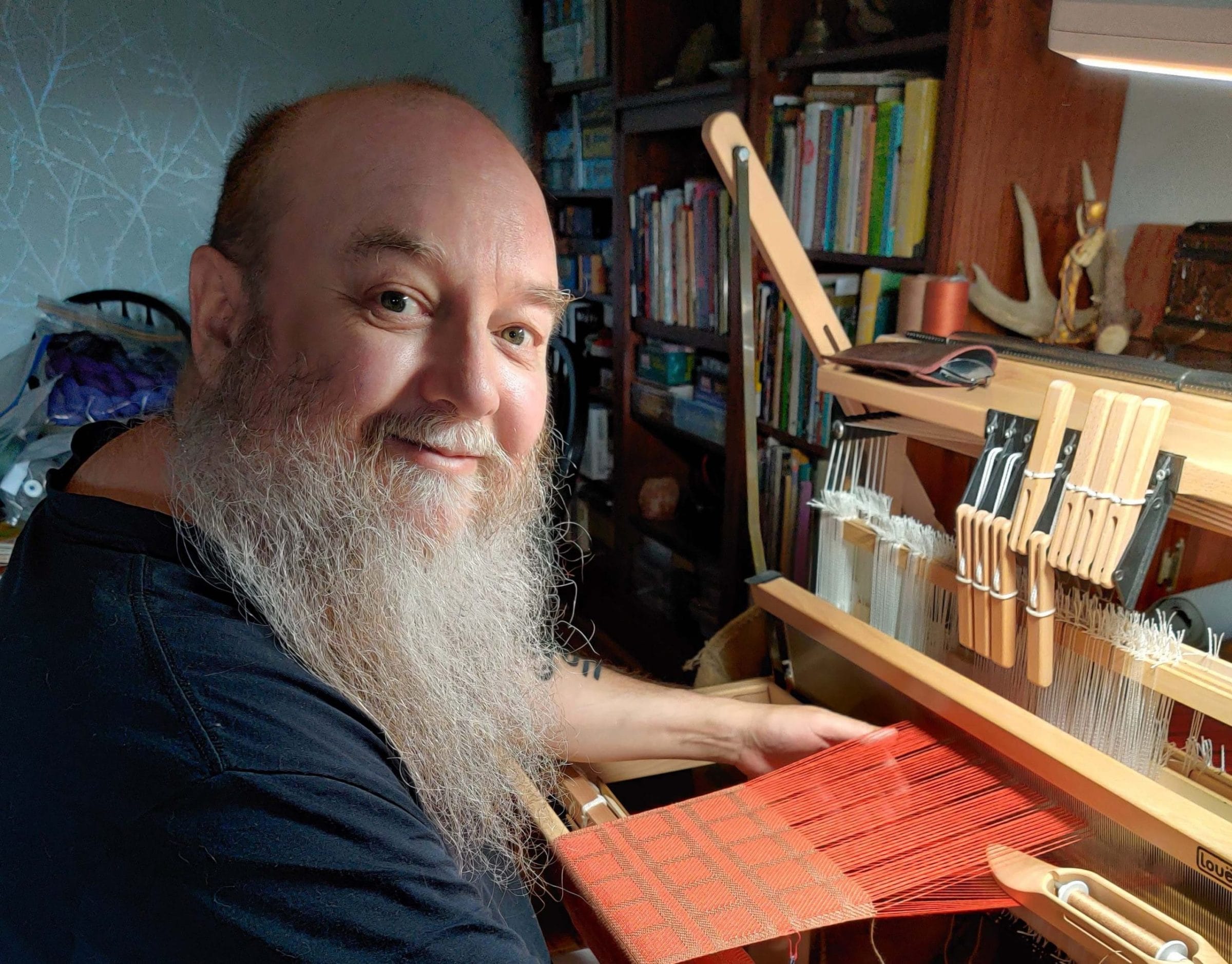
Staff
Weaving Something Beautiful
Weaving is a unique art form. The material needed to create a finished product is beautiful on its own and the spinning of wool or silk into thread for weaving is an art form in and of itself. Taking these beautiful threads and weaving them together to re-create it into another beautiful piece of art emphasizes the importance of the relationship between the different media as well as the relationship between the tools and the artist.
Frank Reiter is such an artist. Frank weaves beautiful threads together – threads often dyed and spun by his wife, Nicole. Creating a finished piece of cloth is a joyful process for him. It is also a form of therapy and for Frank, who lives with anxiety, this has become a meaningful way to bring calm to his life.
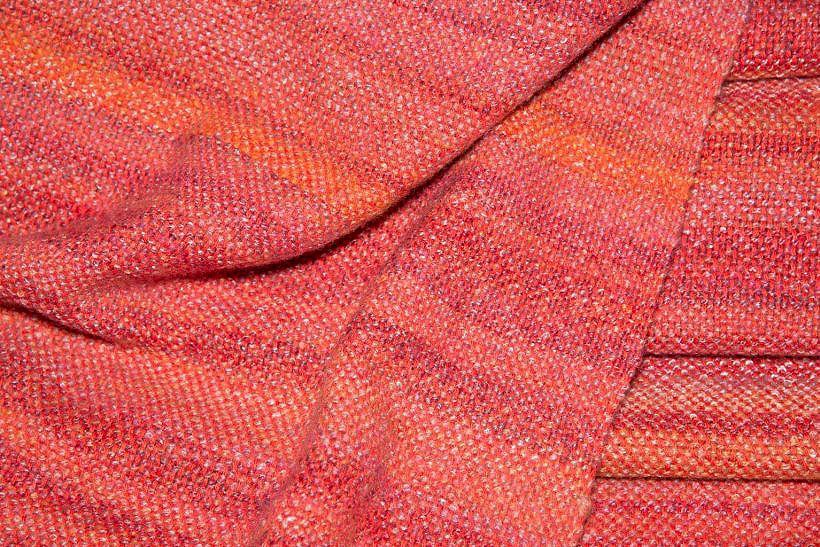
“Weaving is medicine to me,” he says.
The pleasure of the craft improves his mental health in many ways. The process of setting up the loom and doing the weaving is repetitive, requiring careful attention, which lowers his anxiety. He often meditates when he weaves and never rushes towards a deadline, making it a very satisfying, contemplative experience. His finished pieces are beautiful.
Frank is also a weaver of a different sort. As a Peer Support Worker (PSW), Frank weaves the threads of his journey with mental health challenges into the relationships he creates with the people he serves.
Peer Support is about people with lived experience supporting each other on the road towards mental wellness. A PSW has both lived experience and training, giving them a unique skill set. What Frank appreciates about Peer Support is its focus on building mutual relationships. Where mental health services can be directive and sometimes confusing to navigate, Frank says Peer Support is quite different.
We do not hold ourselves in any way above the people we support and we don’t tell people what to do. Instead, we help the people we serve to figure out for themselves what they want out of life and how to move towards it. – Frank, PSW
When Peer Support is done well, the people who are supported do not feel pressured in any way. This makes it a safe relationship where people can be completely honest and take risks with which they are comfortable.
Frank’s own experience with Peer Support has been transformational. For years, Frank was able to manage his anxiety and very few people would have known that he had any mental health issues at all. He was a successful entrepreneur and making progress in his work brought him comfort; the more anxious he became, the harder he worked.
And then, a series of traumatic experiences left him unable to cope and he became “profoundly disabled” by his anxiety. The fabric of Frank’s life began to unravel. He couldn’t talk on the phone. He was afraid to go into a store because he couldn’t speak to the cashier. Trying to make anything more complicated than toast would leave him completely overwhelmed. At his lowest point, anxiety had taken from him nearly everything that makes a life worth living and there was little left but suffering.
“I thought about ending my life many times every day,” he remembers. “I didn’t want to die, I just wanted the incredible suffering to stop.”
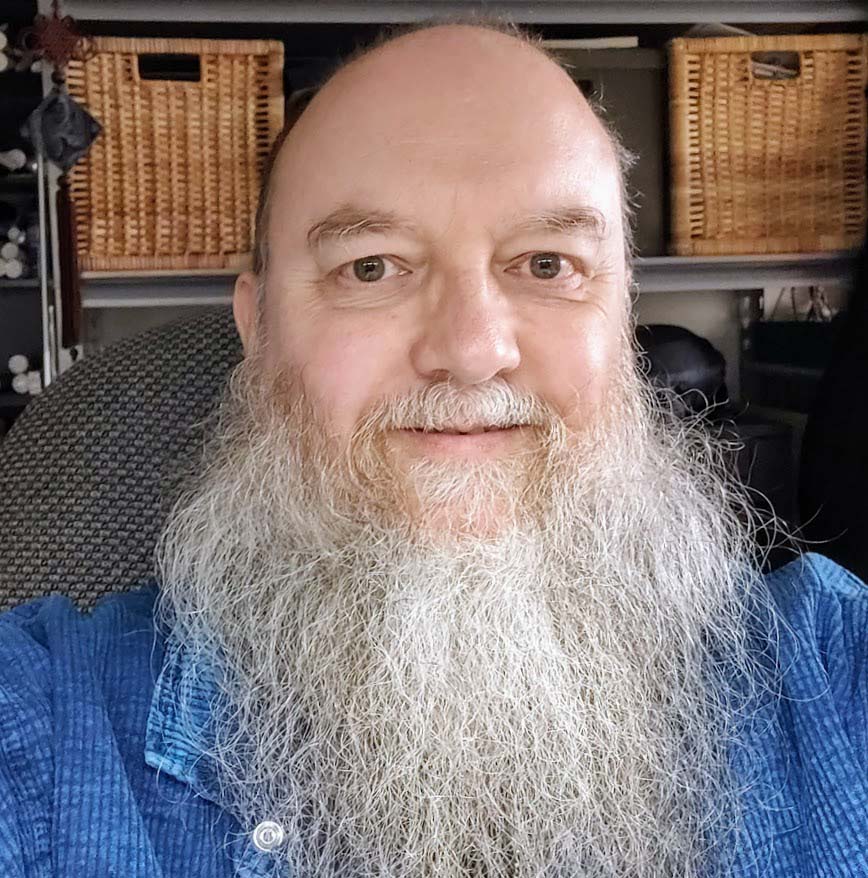
This was Frank’s reality until he began to find help. First it was a support group, where he met people he could relate to. Here he learned about other opportunities. Each step made a difference and as his mental health improved, the fabric of his life began to mend. It was while he was in Recovery Support Training (the first step to becoming a PSW) that two things happened to profoundly impact his life. First, he learned a new way to look at recovery.
“If you have the flu and you recover, then you no longer have the flu. That’s what ‘recovery’ means from a medical point of view,” Frank explains. “This led me to believe that I would never recover. I had watched my own illness get worse and worse and I was pretty sure that recovery was not possible for me.”
Then, Frank met a PSW who shared her story of mental illness and recovery. Her challenges were undeniably as great as those with which Frank was living and yet she had a job, she had friends, she travelled. In fact, she had everything that Frank had lost, even though she was living with a serious mental illness.
“I had to rethink everything once I met a living, breathing example of that,” he says.
While he expects that he will always live with anxiety, he came to see “recovery” less in terms of being “fixed” and more in terms of recovering what was lost.
“Mental illness can rob us of so much: education, jobs, relationships, hobbies, autonomy and much more. We even lose the hope of having those things in the future,” he says. “Recovery can be about getting back what the illness has taken from us or stopped us from getting in the first place. This is the recovery of a life. This is the kind of recovery that is possible for everyone, even if the illness remains. This is what Peer Support is all about.”
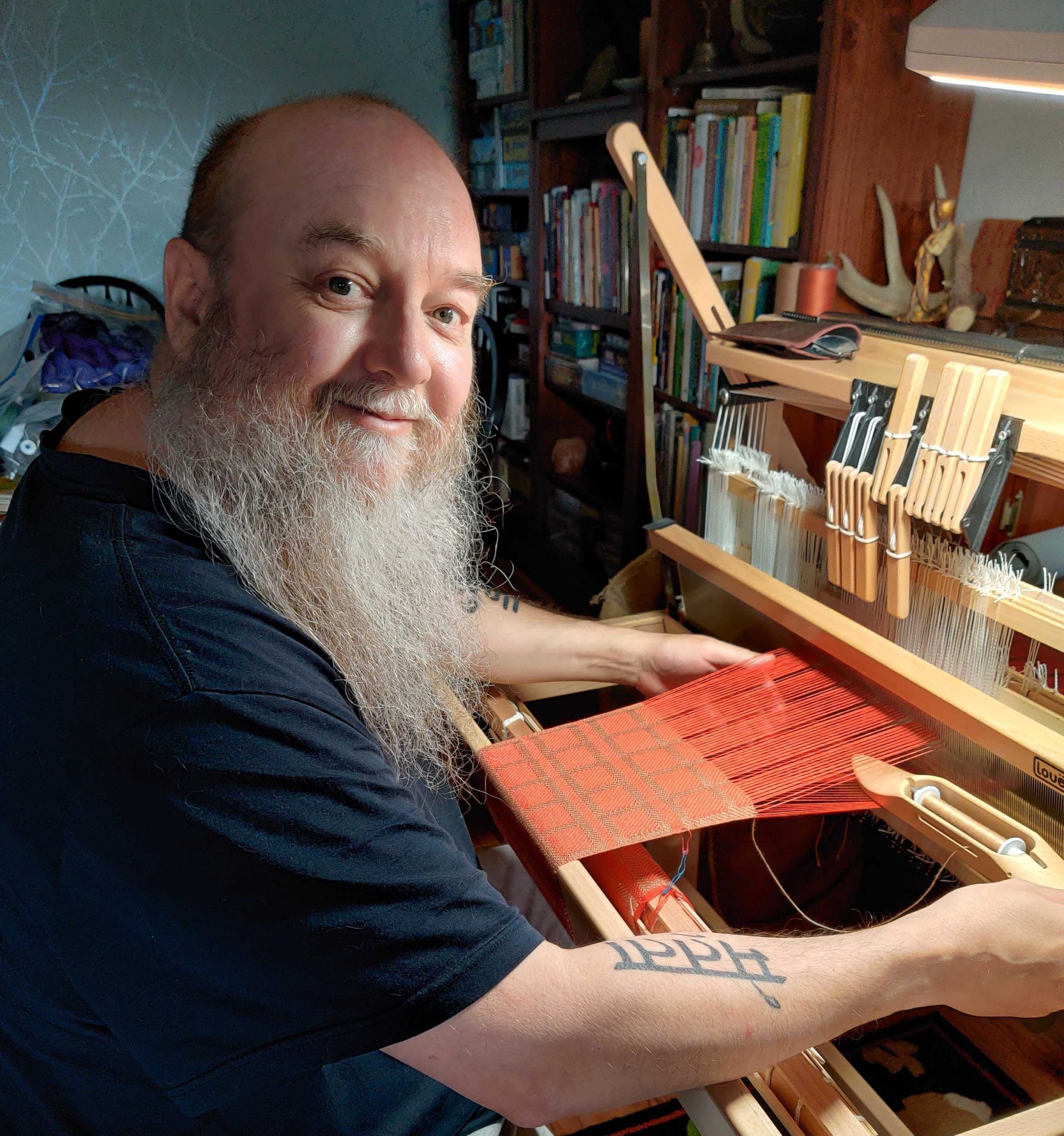
Today, Frank sees the threads of his life that he thought were damaged and of no use, as opportunities to create something different. He weaves those threads into the lives of those he serves as a PSW, offering hope and transformation to others. Knowing that he has lived experience means that those he serves can trust that he understands what they are going through. It allows him to build relationships of trust.
“My favourite part of being a PSW is seeing people come alive with hope as they start making progress on their goals or learn that people with a mental illness can also have a meaningful, rewarding life,” he says.

As both a weaver and as a PSW, Frank lives by example, leading a rich, rewarding, and creative life, watching the threads he is given as they are transformed into beautiful pieces of art in their own time. And that is truly a gift.
Related Stories
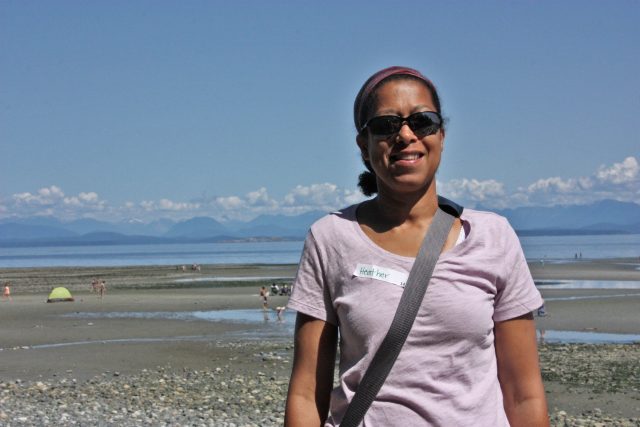
Fulfilling a Desire to Serve
Heather is a person who has a deep desire to serve; it’s what makes working at Communitas such a fulfilling place to be!
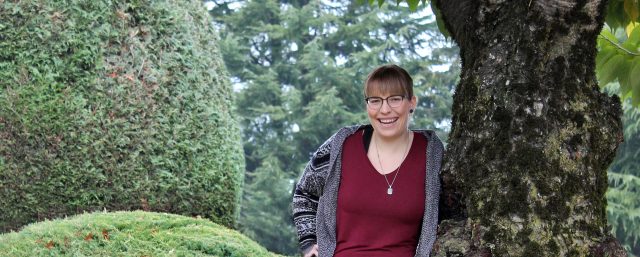
Thankful for a Safe Place to Grow
Vicky is grateful for her experience at Communitas and the way it helps support and shape her desire to serve others.
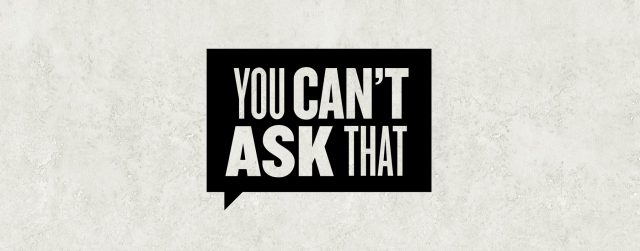
You Can’t Ask That!
Last fall, Peer Support Worker, Adria Roberts had the opportunity to share her journey with schizophrenia in a very unique way, one that is being shared across Canada.